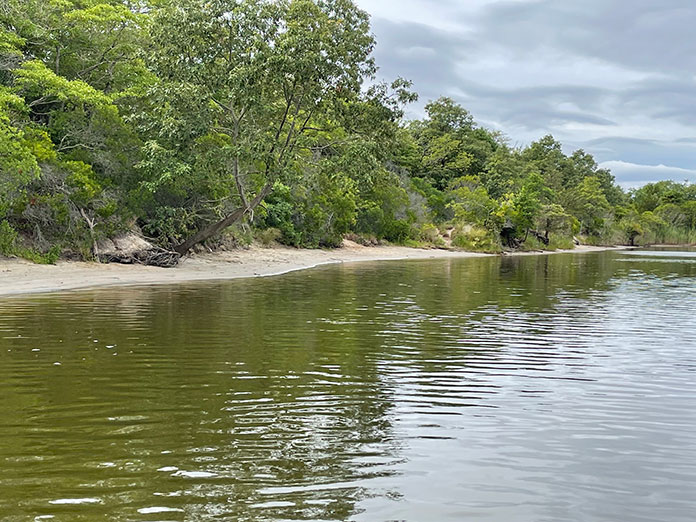
BRICK – On any given warm summer weekend, F-Cove is jam-packed with recreational boaters and jet skiers, and it can be a challenge to enter and exit the area, nevermind try to find a spot for your boat.
The cove is so-named because when seen from above, two man-made lagoons come together to resemble the letter “F.” The site even has a Facebook page with over 3,200 followers.
Located just north of Traders Cove Park and Marina, the cove is part of the Edwin B. Forsythe National Wildlife Refuge. At one time homes were planned for the area.
According to Lt. Jay Matthews, who heads up the Brick Police Marine Unit, F-Cove is full of people having a good time.
“We just want to make sure everyone is out there being careful and safe,” Lt. Matthews said in a recent phone interview.
Most of the problems involve the people who are operating the boats, and more often than not, waverunners being operated in an unsafe manner around all the other boat traffic, he said, such as driving too close to the shore, or operating the vessels too close to the docks where the boats are tied up.
The police have issued summonses for creating a wake in a no-wake zone, having no boat registration, or operating a boat without a boater safety certificate, the lieutenant said.
The Brick Police Marine Unit, which provides a visible presence and enforces laws on the waterways, has two boats. One operates from 10 a.m. to about 9 p.m. with two police officers on Fridays and Saturdays.
On Sundays the two officers are joined by an Emergency Medical Technician. Last year there were seven injuries in or near F-Cove for accidents like cuts resulting from a propeller.

The second police boat is used during special events, like SummerFest, or when there is an emergency and a second boat is needed, Lt. Matthews explained.
There are currently 20 Brick Police officers who are qualified to man the police boats. They must first serve a minimum of three years as a township police officer, and then they take a four- or five-day training class offered by the State Police.
Afterwards, they have to work on the boat a certain number of hours with another officer who is a qualified operator, he said.
Lt. Matthews said there have been no arrests on the water this year. Last year there was one arrest for intoxication.
“If you get a DUI (Driving Under the Influence) on a boat it’s the same as in a car – a blood alcohol content of 0.08, with similar repercussions – although it’s a different statute,” he said.

So far, this summer, the marine unit has gotten 391 calls for service and has made 87 vessel stops. They have responded to two minor vessel crashes, the Lieutenant said.
Last year, the police made 158 vessel stops, and assisted 19 disabled vessels. There were eight vessel crashes.
The State Police also patrol the waters of Barnegat Bay, and they and the township police assist each other if needed, Lt. Matthews said.







